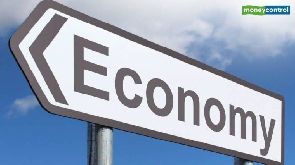- Home - News
- TWI News | TV
- Polls
- Year In Review
- News Archive
- Crime & Punishment
- Politics
- Regional
- Editorial
- Health
- Ghanaians Abroad
- Tabloid
- Africa
- Religion
- Election 2020
- Coronavirus
- News Videos | TV
- Photo Archives
- News Headlines
- Press Release
Business News of Friday, 14 March 2003
Source:
ISODEC holds discussion on budget
Panellists at a discussion programme on the 2003 Budget on Thursday noted the importance of low inflation to the success of government's economic goals, but warned that care should be taken not to strangulate the economy.
They expressed the view that the pursuit of a tighter fiscal and monetary regime could harm economic performance through the shutting down of the productive sectors of the economy.
The panellists said while a tighter fiscal policy could reduce government borrowing and make more money available to the private sector for production, lack of money in individual pockets would squeeze demand for goods on the market and in the process stifle growth.
The panellists were Professor Ernest Aryeetey of the Institute of Statistical, Social and Economic Research (ISSER), Mr Seidu Adamu, Member of Parliament for Bibiani and Mr Amos Sarfo, Secretary of the Institute of Financial and Economic Journalists.
The rest were Mr Vitus Azeem, Programme Co-ordinator ISODEC and Mr Charles Appeagyei, President of the Ghana Federation of the Disabled.
The Integrated Social Development Centre (ISODEC) organised the forum to scrutinise the economic policies underpinning the 2003 budget and to suggest more viable options for consideration in future budget preparations.
Professor Aryeetey said a low inflation rate was important to inspire confidence in the economy.
However, he said, there was the need for government to adopt an approach that would find a comfortable level of inflation that could support the growth of the economy.
This was important to ensure that the desire to keep inflation low did not compromise the growth of the economy, he said, adding that there was the need to strike a delicate balance.
Touching on increased tariffs on imported rice and poultry products, Professor Aryeetey said if the objective was to make local industries competitive, it should be backed by focused government assistance to boost production since imposition of tariffs alone would not make the cost of local products cheaper.
Mr Adamu said bringing down the rate of inflation was very good but to suppress demand in order to achieve it was not in the best interest of the economy.
"There is need for caution as to how far we can go and care needs to be taken at the level to tighten the economy to prevent strangulation," he said.
Mr Sarfo said the imposition of the tariff was good, as it would protect domestic producers from the unbridled importation of such products onto the Ghanaian market.
Mr Azeem said there was the need for government to make tax administration effective but warned that emphasis on consumption tax would make the majority of Ghanaians poor.
Mr Appeagyei called on government to consider making specific budgetary allocation for people with disability.










